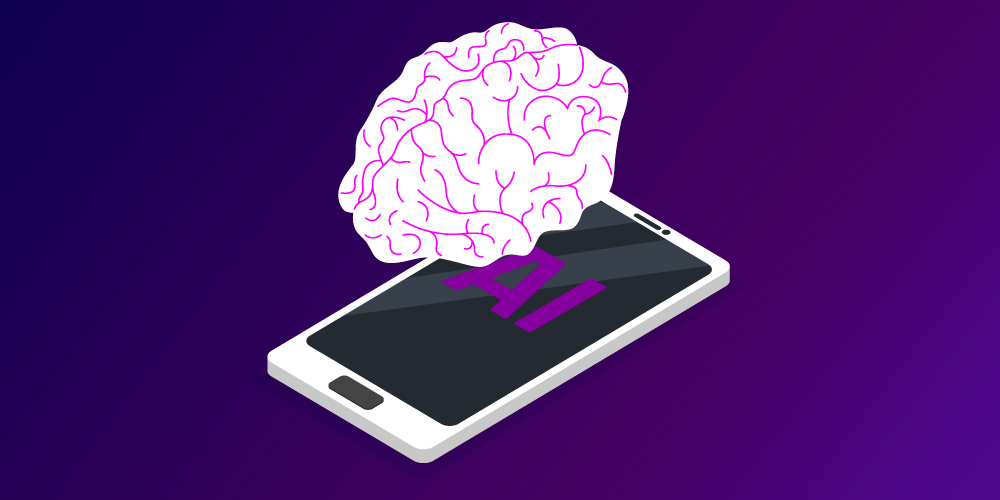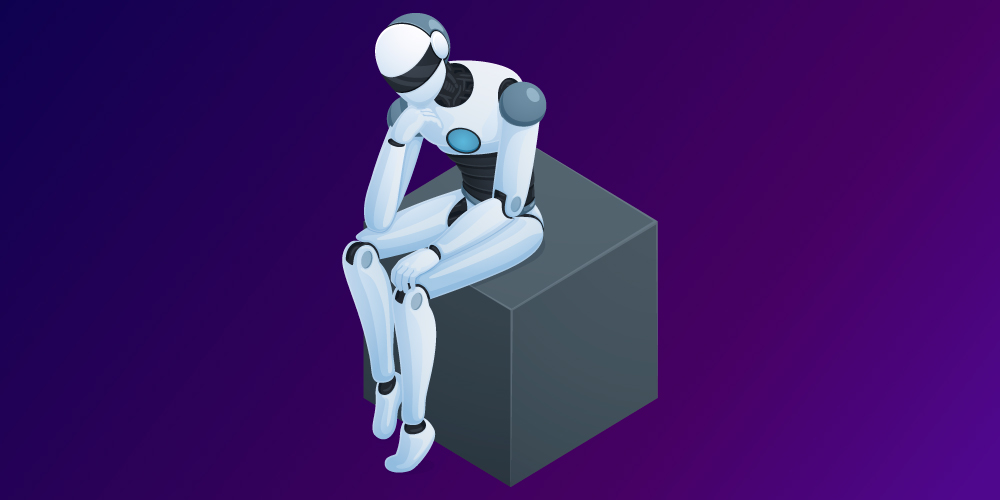Vivid sci-fi movies and talking robots may be the first thing that comes to mind when thinking about artificial intelligence. But you may not know that AI is already all around us.
What will artificial intelligence bring to our lives
Artificial intelligence is already everywhere: from online shopping recommendations and driverless cars, to virtual assistants like Siri and Alisa. Let’s see how AI works.
Artificial intelligence is the science that makes computers smarter. Sophisticated algorithms allow computers to solve problems that previously only humans could solve. AI can learn to perform a specific task, regardless of the huge amounts of data being processed – a process called machine learning.
AI has its limitations, as it can’t yet easily transfer skills or understand abstract concepts. But when it comes to cognitive tasks, it can help us a lot. Especially in areas where new technologies can be used to remove some of the existing restrictions, such as cybersecurity and cryptocurrencies.
- Cybersecurity
Cybersecurity statistics show that the number of cyberattacks is growing every day. A recent study by the University of Maryland shows that one hacking attack occurs every 39 seconds. It is clear that modern cybersecurity technologies are not 100% impenetrable.
AI can complement experts, removing some of the burden from them. Machines are great for quickly processing huge amounts of data and highlighting any strange or interesting information for study. Artificial intelligence is really a building block to help detect cyber threats, as it quickly detects any problems.
- Identifying and predicting threats
Artificial intelligence models can detect potential security threats, vulnerabilities, and malicious actions to stop them before they cause any harm.
Examples of this are california-based avata intelligence, which uses machine learning and security to predict future terrorist threats. Deep Instinct is another global platform that uses predictive analysis to detect variations in known malicious code.
- Network security
There are two important aspects of network security: security settings and network topography. The former help distinguish between legitimate and malicious connections, while the latter reduce the impact of disconnected devices on network performance.
The use of AI in cybersecurity can help automate these procedures, using network traffic patterns.
- Password protection and authentication
Weak passwords pose a huge security risk as hackers can easily access personal data from your accounts. While having a strong password is a great first step, combining AI cybersecurity with biometric checks can add an extra layer of security.
A great example is face ID on iPhone. Built-in infrared sensors and neural mechanisms detect 30,000 different control points on the face, forming a vector model of the user’s facial features. The AI then matches them with the stored data to confirm your identity.
Passwords themselves are a weak security measure, as it is relatively easy for hackers to gain access to personal accounts, and this is one of the biggest mistakes of crypto holders. Despite the fact that biometric checks are now used as a good alternative, they are still not completely secure.
The use of AI cyber security with biometric checks can help to eliminate the existing problems. By reducing the number of unauthorized logins, this combination provides greater security for your accounts and files.
How to avoid human mistakes
While it is common for humans to make mistakes, the strengths of artificial intelligence in cybersecurity systems lie in its accuracy, especially when performing repetitive tasks. Human error is one of the main causes of data leakage, and AI can avoid it.
It’s important to note that ai doesn’t replace experts (yet), but they can work together to create better security tools.
Advantages of using AI in cybersecurity

With so many applications of artificial intelligence in cybersecurity, it offers many advantages, including:
- Processing
Big data statistics show that there will be 40 trillion gigabytes of data in 2020. The Internet is growing exponentially, and people are not keeping up with the huge amount of data created every day.
Because AI’s strengths lie in the speed and accuracy with which it can process data, it can help us filter out information to find any errors or dangers.
One of the main challenges of current cybersecurity is the amount of data that needs to be processed. AI can solve this problem because it processes data much faster.
- No errors
Statistics show that between 2001 and 2015, technology replaced 800,000 jobs in the uk, but also created 3.5 million new ones. Automation creates more jobs and opportunities.
One of the main applications of artificial intelligence is the automation of simple and repetitive tasks in which people tend to make mistakes. This gives manual workers time to focus on more demanding jobs.
- Identifying small cyber threats
The cyber criminals are using advanced methods by which the majority of the threats go unnoticed to the human eye. AI can recognize the smallest changes in network patterns and quickly identify them.
- Faster detection and response time
AI detects incidents that may cause security threats in real time and quickly resolves them.
- Secure authentication
Websites that allow users to log in or make payments, especially those related to cryptocurrencies, need additional security. This can be helped by using AI authentication methods, such as facial recognition.
With so many of the benefits that AI brings, it’s not surprising that it’s implemented in many new cyber security technologies. Now let’s take a look at the latest trends.
- AI Cybersecurity Trends
In an ever-expanding online world, cybercriminals are more active than ever before. AI is changing the rules of the game in the cybersecurity industry, helping professionals create smarter methods for building security.
Next up are some of the latest trends related to the use of artificial intelligence in cybersecurity.
- AI against cyber attacks
AI learns from patterns and past behavior, which allows it to be a great cyber defender. An example can be found in spam / phishing email protection. By studying previous data, AI can protect us from any malicious actions. This is why most of the best antivirus packages use artificial intelligence.
- AI in Improved Ecosystems
We can use contextual understanding of ai to detect false positives, helping businesses create a more secure ecosystem. The use of artificial intelligence security removes some of the work from the security departments of any crypto company, allowing them to focus on tasks that require a human mind.
- AI in EWS
Early Warning Systems (EWS) have been used against cyberattacks for a long time, but as the threat level increases, some help is needed. Combining traditional ews with ai can create virtual sensors and complex data manipulation for logical models.
These concepts can increase the reliability, scalability, flexibility of AI and its effectiveness in combating threats. We can use it to detect attacks from local and global networks to protect network protocols from malicious actions.
- Generative Adversarial Networks (GAN)
Generative adversarial networks are two artificial intelligence systems competing with each other. One of them simulates the original content, and the other reveals its errors. This technology helps improve cybersecurity systems and other networks.
Is artificial intelligence a threat?

So far, we have only considered the benefits of using this technology. However, hackers using artificial intelligence can be a major concern.
Hackers can develop AI-resistant malware using the same technology. This type of malware can recognize detection patterns used by cybersecurity professionals, allowing them to penetrate even the most secure solutions.
The cyber criminals can attack the data used for learning models of cyber security AI. This threat can affect both the accuracy and performance of cyber threat detection systems.
Conclusion
AI is still in its infancy. When used in the field of cybersecurity, it has a lot to learn and work on. Therefore, the probability of false positive results is relatively high.
Integrating ai and cybersecurity is the way forward, given the rise of cyberattacks around the world. AI can help modern security technology automate threat detection and track potential cyberattacks for a limited period of time. Given the robust and flexible cybersecurity characteristics of ai, there is no doubt that it can create a robust security system. But we can’t ignore the fact that ai can also help attackers create new cyber threats, or still work against us. Despite the fact that the AI is still far from being able to reach your full potential, he will help us in unimaginable ways. Everything will depend on whose hands the technology will be in.


